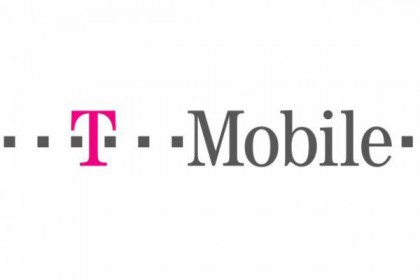Top Class Actions’s website and social media posts use affiliate links. If you make a purchase using such links, we may receive a commission, but it will not result in any additional charges to you. Please review our Affiliate Link Disclosure for more information.

The FTC indicated that it was also investigating T-Mobile for “cramming,” the fraudulent practice of adding unauthorized charges to customers’ phone bills.
According to the FTC, T-Mobile received 35 to 40 percent of the total amount its customers were charged for these so-called premium text messaging services, which included content such as horoscopes, celebrity gossip or flirting tips. These text messaging services typically cost $9.99 per month.
The FTC alleges T-Mobile continued to bill customers for these bogus text messaging services for years, ignoring signs that these charges were fraudulent. According to the FTC, T-Mobile continued to bill customers for unauthorized charges despite alerts by industry auditors, law enforcement actions and news reports indicating third-parties were not obtaining valid authorization from mobile customers for the subscription text messaging services.
“It’s wrong for a company like T-Mobile to profit from scams against its customers when there were clear warning signs the charges it was imposing were fraudulent,” said FTC Chairwoman Edith Ramirez.
Despite the customer complaints and their demands for refunds, T-Mobile reportedly refused to issue full refunds to consumers or directed them to seek refunds directly from the third-party scammers. T-Mobile also allegedly insisted that some consumers had actually authorized the charges even though they had no proof of authorization.
Further, the FTC alleges that T-Mobile’s billing practices made it hard for consumers to recognize that they were being charged for bogus services. Instead, the charges would be listed as “Premium Services,” under a separate heading called “Usage Charges.” However, T-Mobile customers were unable to view the individual charges to the third party companies.
According to the T-Mobile cramming lawsuit, the third party charges were listed on T-Mobile’s full phone bills, which the FTC alleges can be printed on more than 50 pages, making it nearly impossible for a customer to identify the third-party charges. Customers with pre-paid calling plans would reportedly have these subscription fees debited from their pre-paid accounts without their knowledge and without providing notice of the charge.
“Only those consumers who successfully identify the unauthorized charge can even attempt to dispute it,” the text subscription scam lawsuit says. “Because consumers who are on pre-paid plans do not receive monthly bills and others have not noticed the charges in their abbreviated form on their phone bills, the refund rate does not include all consumers who did not authorize the charges.”
In the last year, the FTC has sought to end the practice of mobile cramming. The agency has filed text scam lawsuits against Jesta Digital, Wise Media and Tatto Inc. According to the FTC reports, T-Mobile has billed its customers on behalf of these companies. The FTC seeks an injunction preventing T-Mobile from engaging in mobile cramming. The agency seeks refunds for the affected consumers and disgorgement of profits gleaned from the alleged scam.
The T-Mobile Text Message Subscription Scam Lawsuit is Federal Trade Commission v. T-Mobile USA Inc., Case No. 2:14-cv-00967, in the U.S. District Court for the Western District of Washington.
UPDATE: On Feb. 1, 2017, the Federal Trade Commission announced that it will be issuing nearly $20 million in refund checks to more than 617,000 T-Mobile customers who were subjected to unwanted third-party charges.
ATTORNEY ADVERTISING
Top Class Actions is a Proud Member of the American Bar Association
LEGAL INFORMATION IS NOT LEGAL ADVICE
Top Class Actions Legal Statement
©2008 – 2024 Top Class Actions® LLC
Various Trademarks held by their respective owners
This website is not intended for viewing or usage by European Union citizens.















5 thoughts onFTC Hits T-Mobile with Text Message Subscription Scam Lawsuit
Add me please I was with them for more than a couple of years.
Please include me on this settlement
UPDATE: On Feb. 1, 2017, the Federal Trade Commission announced that it will be issuing nearly $20 million in refund checks to more than 617,000 T-Mobile customers who were subjected to unwanted third-party charges.
I have been a tmobile customer since 2006 I had 3 lines and paid a lot of money every month, when I went to leave tmobile I got hit with etf for the 3 lines, How do I get in on this lawsuit to recover some of my money
I have been a tmobile customer for 6 years and have had issues with their billing also. I have also been told that they added extra “fluff” to the bill to cover the charges of your upgrades and that if you do not take your upgrade that is your loss. Is this suit still available to join?